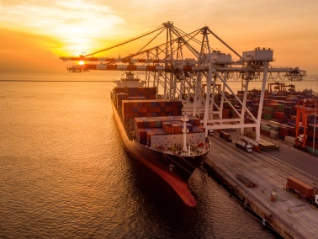
B2B payment practices trends, Canada 2024

What the Fed's "Jumbo" rate cut means for the global economy

Metalco Inc.: Driving new business with quick communication
US tariffs, geopolitics and lower demand trigger a contraction of global automotive production in 2026


Tari...

Pharmaceuticals businesses throughout the world are reviewing their operational and...

Chemicals production growth projected to slow in 2025/2026 due to US tariffs

US business response to shifting trade policies

Our survey of companies across Canada, Mexico and the US reveals that while trade credit use is expanding, businesses remain...

Tariffs and related uncertainty causing a large negative impact
Viewing 7 out of 160
Trade tensions, AI investment and geopolitical shifts dominate the global trade agenda. The key takeaway: business must...


Our Q3 2025 Risk Map update underscores the widespread nature of country...

The President promised the return of millions of factory jobs, but rising investment pledges masks a mixed picture for US manufacturing

Closer ties could boost trade and create a functioning alternative to the misfiring WTO. But without the involvement...

While the deal brings a sigh of relief, unresolved details and ambitious targets leave...

Atradius Syndicate 1864 will focus on trade credit risks, initially targeting new and existing European...

Businesses face increasing supply chain risk as geopolitical tensions, tariffs and economic incentives...
Viewing 7 out of 47


With the backing of Atradius’s resources, EnCom Polymers has been able to expand business with existing customers and go...

BVV GmbH grew internationally and recognised risks such as companies on the brink of insolvency in plenty of time to mitigate the...

Atradius Surety has enabled Vinci Construction France to expand their sources of finance beyond their...

How we are part of Continental Banden Groep B.V.'s business process, minimising risk and supporting sales

Ben Green, President and Owner at...

As a successful business, L’Oréal Hong Kong wanted a partner that could help protect their regional interests and support...
































